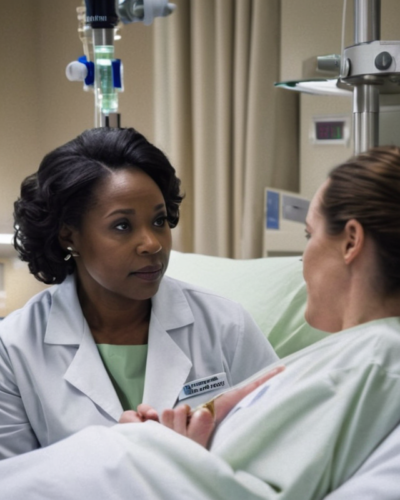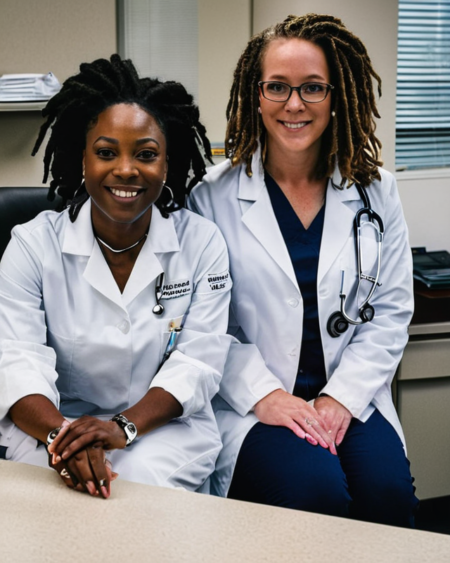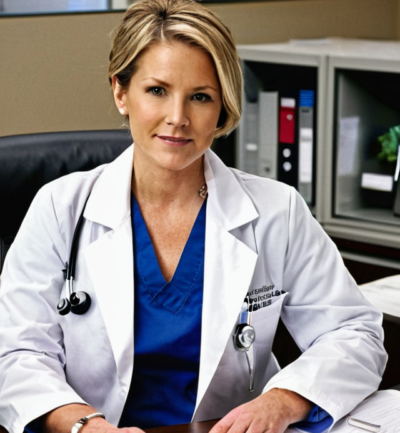Introduction
The healthcare industry is a complex ecosystem where the quality of patient care and operational efficiency heavily relies on accurate and comprehensive documentation. Amidst this backdrop, the role of Clinical Documentation Specialists (CDS) has emerged as pivotal. These professionals bridge the gap between clinical care and administrative documentation, ensuring that patient records accurately reflect the care provided. Their work not only supports the delivery of high-quality healthcare but also underpins the financial and legal integrity of healthcare organizations.
Clinical Documentation Specialists operate at the intersection of clinical expertise and health information management. They are tasked with reviewing medical records, interacting with physicians to clarify information, and ensuring that all documentation complies with regulatory standards. The significance of their role cannot be overstated, as they directly contribute to the quality of patient care by facilitating clear and accurate communication among healthcare providers. Moreover, in an era where healthcare reimbursement models are increasingly tied to documentation quality and patient outcomes, the CDS’s work ensures that organizations receive appropriate compensation for the care provided.
As the healthcare landscape continues to evolve, driven by technological advancements and changing regulations, the demand for skilled Clinical Documentation Specialists is on the rise. This blog aims to explore the Clinical Documentation Specialist nursing career, offering insights into what it entails, how to embark on this career path, the challenges and rewards it presents, and its future outlook.
What is a Clinical Documentation Specialist?
A Clinical Documentation Specialist is a professional who ensures that the documentation of patient care is accurate, complete, and compliant with all regulatory and accreditation requirements. This role is critical in the healthcare sector, as precise documentation impacts patient care, billing processes, and legal compliance. CDS professionals work closely with physicians, nurses, and other healthcare providers to clarify any ambiguous or incomplete information in patient records. They also advise medical staff on best practices for documentation to capture the full scope of patient care.
The responsibilities of a Clinical Documentation Specialist include:
- Reviewing medical records for completeness and accuracy.
- Clarifying any ambiguous or unclear information with the appropriate healthcare provider.
- Ensuring that documentation reflects the intensity of care and services provided.
- Identifying and rectifying inconsistencies, inaccuracies, and omissions in medical documentation.
- Educating healthcare providers on the importance of compliance and documentation best practices.
To excel in this role, a Clinical Documentation Specialist must possess a deep understanding of medical terminology, anatomy, physiology, and the nuances of various medical conditions. They must also be well-versed in healthcare regulations, including HIPAA and coding standards. Strong communication skills are essential, as CDS professionals must effectively interact with medical staff to gather and clarify information. Additionally, they should have critical thinking skills to analyze complex medical records and identify areas requiring improvement.
The importance of Clinical Documentation Specialists has been magnified with the advent of electronic health records (EHRs) and the increasing complexity of healthcare services. Their role ensures that the patient care narrative is accurately captured, which is vital for quality patient care, legal protection, and the financial well-being of healthcare institutions.
In the next sections, we will delve into the educational and professional pathways to becoming a Clinical Documentation Specialist, outline their day-to-day responsibilities, discuss career progression opportunities, and explore the challenges and rewards of this vital healthcare profession.
Becoming a Clinical Documentation Specialist
Embarking on a career as a Clinical Documentation Specialist (CDS) requires a combination of education, experience, and specialized skills. The journey typically begins with a strong foundation in healthcare, followed by targeted training in clinical documentation. Here’s how aspiring professionals can navigate their way into this critical and rewarding field.
Educational Requirements
Most employers require Clinical Documentation Specialists to have at least an associate’s or bachelor’s degree in nursing, health information management, or a related healthcare field. A background in nursing is particularly advantageous, as it provides a solid understanding of patient care processes, medical terminology, and the healthcare system. For those coming from a nursing background, transitioning to a CDS role often means building upon their clinical experience with additional training in documentation standards and practices.
Certification and Further Training
Certification is a key step for those looking to establish themselves in the field of clinical documentation. Certifications such as the Certified Clinical Documentation Specialist (CCDS) offered by the Association of Clinical Documentation Improvement Specialists (ACDIS) or the Certified Documentation Improvement Practitioner (CDIP) from the American Health Information Management Association (AHIMA) are highly regarded. These certifications validate a specialist’s expertise in clinical documentation and are often required by employers.
To obtain certification, candidates must typically have a few years of experience in healthcare, demonstrate proficiency in medical terminology, and pass a comprehensive examination. Preparation for certification exams can involve self-study, online courses, or formal education programs that focus on clinical documentation improvement principles.
Skills and Attributes for Success
Beyond formal education and certification, successful Clinical Documentation Specialists possess a mix of technical and soft skills. These include:
- Expertise in Medical Terminology: A thorough understanding of anatomy, physiology, and medical procedures is crucial for interpreting and documenting patient care accurately.
- Attention to Detail: Precision is key in reviewing and auditing medical records to ensure they meet compliance standards.
- Analytical Skills: CDS professionals must analyze complex medical records, identifying gaps or inconsistencies that need clarification.
- Communication Skills: Effective communication with physicians and other healthcare providers is essential for clarifying and improving documentation.
- Adaptability: Healthcare regulations and technologies evolve rapidly, requiring CDS professionals to continuously update their knowledge and skills.
Day-to-Day Responsibilities
A Clinical Documentation Specialist plays a pivotal role in the healthcare system, ensuring the accuracy and completeness of patient records. Their day-to-day responsibilities are diverse and require a keen eye for detail, excellent communication skills, and a deep understanding of medical practices and terminology.
Reviewing Medical Records
One of the primary tasks of a CDS is to review patient medical records for accuracy and completeness. This involves examining documentation to ensure it accurately reflects the patient’s diagnoses, treatment plans, and the care provided. They look for inconsistencies, omissions, or ambiguous information that could affect patient care or reimbursement.
Clarifying Documentation
When discrepancies or unclear information are identified, CDS professionals work directly with physicians and other healthcare providers to clarify and update documentation. This might involve discussing a patient’s condition, treatment decisions, and outcomes to ensure the medical record accurately represents the care provided.
Educating Healthcare Providers
An essential part of a CDS’s role is to educate physicians, nurses, and other healthcare staff on proper documentation practices. This includes training on the importance of specific, accurate, and complete documentation and how it impacts patient care, legal compliance, and financial reimbursement.
Ensuring Compliance
Clinical Documentation Specialists must ensure that all documentation complies with federal, state, and local regulations, as well as standards set by healthcare accreditation organizations. They stay updated on changes in healthcare laws and regulations to ensure compliance.
Quality Improvement
CDS professionals also play a key role in quality improvement initiatives within healthcare organizations. By analyzing trends in documentation and identifying areas for improvement, they contribute to strategies that enhance patient outcomes and organizational efficiency.
Technology and Software Use
With the widespread adoption of Electronic Health Records (EHRs), Clinical Documentation Specialists frequently use specialized software and technology to perform their duties. They must be proficient in EHR systems, coding software, and other tools that assist in reviewing and improving clinical documentation.
The day-to-day life of a Clinical Documentation Specialist is characterized by a blend of clinical knowledge, attention to detail, and constant collaboration with medical staff. Their work ensures that patient records are an accurate and comprehensive reflection of the care provided, supporting high-quality patient outcomes and the operational success of healthcare organizations.
Next, I’ll cover Career Path and Progression and Challenges and Rewards. Let me know if you have any specific points or insights you’d like to include in these sections!
Career Path and Progression
The career path of a Clinical Documentation Specialist (CDS) offers various avenues for growth and advancement, both within the realm of clinical documentation and beyond. Starting from an entry-level position, CDS professionals can ascend to senior roles, take on leadership or management positions, or specialize further in areas such as compliance, auditing, or education within healthcare documentation.
Entry-Level to Advanced Positions
Initially, CDS professionals may start in roles that focus on reviewing and improving documentation for a specific department or type of care. As they gain experience and demonstrate expertise, opportunities to advance to positions with broader responsibilities become available. This can include overseeing documentation practices across multiple departments or specialties, leading teams of documentation specialists, or focusing on complex cases that require a high level of expertise.
Leadership and Management Roles
Experienced CDS professionals may transition into leadership roles such as Clinical Documentation Improvement (CDI) Manager or Director of CDI. These positions involve strategic planning, staff management, training, and oversight of documentation improvement programs across healthcare organizations. Leadership roles require a strong understanding of healthcare operations, finance, and regulations, in addition to clinical documentation expertise.
Specialization and Continuing Education
Specializing in areas such as healthcare compliance, medical auditing, or informatics is another pathway for CDS professionals. Pursuing additional certifications or degrees in these areas can open up opportunities in consulting, education, or in developing policies and procedures for healthcare documentation and compliance.
Continuing education is crucial for career progression in clinical documentation. Staying informed about the latest trends in healthcare, changes in regulations, and advancements in technology enables CDS professionals to remain effective and relevant in their roles.
Beyond Clinical Documentation
The skills and knowledge acquired as a Clinical Documentation Specialist are highly transferable. Professionals may explore careers in health information management, quality improvement, risk management, or healthcare administration. The analytical skills, attention to detail, and comprehensive understanding of healthcare processes developed in CDI roles are valued across many aspects of healthcare operations.
Challenges and Rewards
The career of a Clinical Documentation Specialist is both challenging and rewarding, offering a unique blend of analytical work, patient impact, and professional satisfaction.
Challenges
- Keeping Up with Regulatory Changes: Healthcare regulations and guidelines are continually evolving. Staying updated requires constant learning and adaptability.
- Complexity of Medical Information: Understanding and accurately documenting complex medical information can be challenging, especially when dealing with rare conditions or new treatments.
- Physician Engagement: Encouraging busy physicians and healthcare providers to prioritize documentation improvement can be difficult. Building effective communication and educational strategies is essential.
- Technology Adaptation: As healthcare moves towards more sophisticated electronic health records and data management systems, keeping up with technology is a must.
Despite these challenges, the role of a Clinical Documentation Specialist is immensely rewarding.
Rewards
- Impact on Patient Care: By ensuring accurate and comprehensive documentation, CDS professionals directly contribute to improving patient care and outcomes.
- Professional Satisfaction: There is a deep sense of achievement in knowing that your work supports the integrity and success of healthcare delivery.
- Financial Benefits: The demand for skilled Clinical Documentation Specialists has led to competitive salaries and benefits in this field.
- Continuous Learning and Growth: The necessity to stay updated with medical knowledge, regulations, and technologies fosters an environment of continuous professional development.
The Future of Clinical Documentation and the Role of CDS
The future of clinical documentation is poised for significant transformation, driven by advancements in technology and evolving healthcare models. Electronic Health Records (EHRs) will become more integrated and user-friendly, allowing for more efficient documentation processes. Artificial Intelligence (AI) and Machine Learning (ML) technologies are expected to play a larger role in automating routine documentation tasks, analyzing patient data, and enhancing decision support for healthcare providers.
Despite technological advancements, the need for skilled Clinical Documentation Specialists will remain critical. The human element of understanding complex medical scenarios, ensuring compliance with changing regulations, and educating healthcare providers on documentation best practices cannot be fully replicated by technology. As healthcare becomes more data-driven, the role of CDS professionals will evolve to include more focus on data analysis, quality measurement, and outcome improvement strategies.
The career of a Clinical Documentation Specialist offers a unique opportunity to make a significant impact on the healthcare system. It combines the satisfaction of contributing to patient care with the intellectual challenge of navigating the complexities of medical documentation and regulations. For those passionate about healthcare, attention to detail, and continuous learning, a career as a CDS promises a fulfilling and dynamic professional journey.






Nice Article !
Thank you.